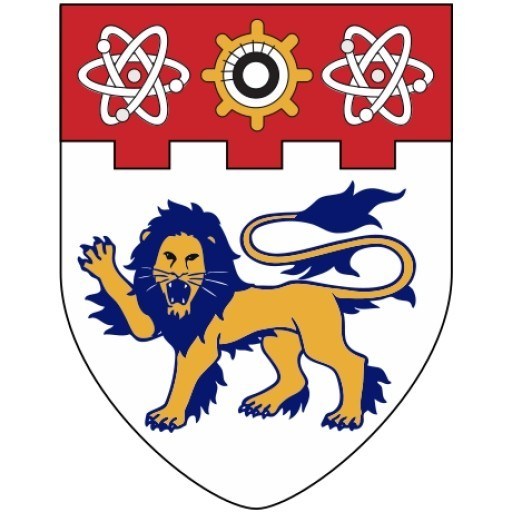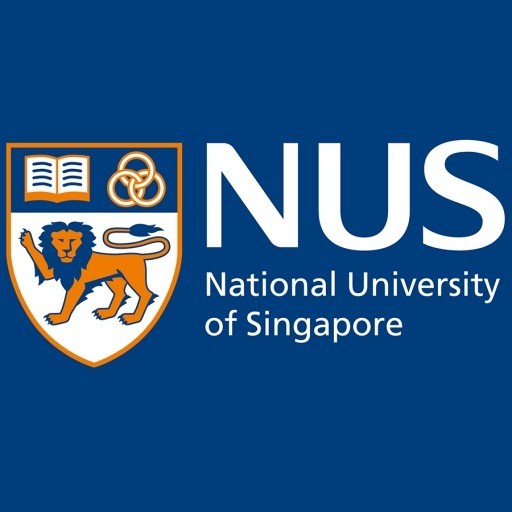Photos of university / #ntu_sg
The Bachelor of Social Sciences in International Relations at Nanyang Technological University offers students a comprehensive understanding of the dynamic and interconnected world of global politics, diplomacy, and international affairs. This programme is designed to equip students with critical analytical skills, a nuanced understanding of international systems, and the ability to assess complex issues facing the global community. Students will explore a wide range of topics including international security, foreign policy, international political economy, human rights, conflict resolution, and global governance, gaining insights into the political, economic, and social factors that influence international relations today.
The curriculum combines theoretical frameworks with practical, real-world applications, allowing students to develop a well-rounded perspective on global issues. Coursework includes case studies, simulations, and research projects that foster analytical thinking and problem-solving skills essential for careers in diplomacy, international organizations, government agencies, non-governmental organizations, or international business. The programme encourages the development of language skills and intercultural competence, preparing graduates to operate effectively in diverse international environments.
Students have opportunities for internships, exchange programmes, and research collaborations with leading international institutions, enhancing their global outlook and professional networks. The academic staff comprises experienced scholars and practitioners who bring a wealth of knowledge and expertise in international relations, ensuring that students receive both rigorous academic training and practical insights. Graduates of this programme are well-prepared to pursue advanced studies or professional careers in areas related to international diplomacy, global policy analysis, international law, or international development. Through a multidisciplinary approach, the programme fosters critical thinking, ethical awareness, and a commitment to contributing positively to the international community.
Core Courses
- IR6001 The Study of International Relations
- IR6029 Foreign Policy Analysis
Primary Courses
- IR6003 Critical Security Studies
- IR6004 International Relations of Northeast Asia
- IR6005 International Relations of South Asia
- IR6006 The Study of Institutions
- IR6015 Japanese Foreign Policy
- IR6020 European Union and Contemporary European Security
- IR6023 An Introduction to International Law
- IR6024 International Human Rights Law
- IR6025 Global Governance
- IR6028 Current Topics and Controversies in U.S. Foreign Policy
- IR6030 The International Politics of Islam: Ideas, Actors and Contemporary Issues
- IR6031 International Politics of Communication IR6025 Global Governance
- IR6033 Global Environmental Politics
- IR6035 US-China Relations
- IP6015 Quantitative Methods in the Study of International Politics
Elective Courses
- AS6001 Comparative Politics of Asia
- AS6000 The International History of Asia
- AS6007 Government and Politics of Southeast Asia
- AS6008 Maritime Security and Territorial Disputes in the Indo-Pacific
- AS6010 State and Politics in Modern Indonesia
- AS6011 State, Society and Politics in Malaysia
- AS6013 State, Society and Politics in China
- AS6015 Non-Traditional Security Issues in Asia
- AS6020 Islam, State and Society in Southeast Asia
- AS6021 Government-Business Relations in Asia
- AS6022 China’s Foreign and Security Policy
- AS6023 India’s Foreign and Security Policy AS6011 State, Society and Politics in Malaysia
- AS6024 Nationalism and Multiculturalism
- AS6025 Introduction to Discourse Analysis, with a special emphasis on Religio-Political Discourse
- AS6026 Religion, Violence and Peacebuilding
- AS6027 State, Society and Politics in the Philippines
- AS6028 Studying Religion in Plural Societies
- AS6029 Governance & Security in Myanmar
- AS6030 Encountering Religions in Plural Societies: Comparative & Contrastive Perspective
- AS6032 Contemporary Relations of Islam and Politics: Deconstructing Islamis, Salafism and Jihadism
- AS6033 Modern Challenges, Contextualisation & the Qur’an
- AS6034 Political Anthropologies of Southeast Asia
- AS6035 Dialogue: Interreligious Encounters & Peacebuilding
- AS6036 Islam, Diversity & The Religious Other
- AS6037 Christianity, Religious Violence & Peacebuilding
- AS6039 Comparing the Dynamics of Islam in Turkey & Indonesia
- AS6040 China’s Foreign Relations
- IP6000 Theories and Issues in International Political Economy
- IP6001 Economics for International Political Economy
- IP6008 A Globalizing China in the World Economy
- IP6009 Monitoring Forecasting & Managing Country Risk and Economic Crisis
- IP6016 Energy and Environment Issues
- IP6018 Regional and Global Financial Crisis
- IP6021 International Economic Institutions & International Economic Policies
- IP6022 Indonesian Economy
- IP6025 Comparative Political Economy
- IP6026 Introduction to the Political Economy of Southeast Asia
- IP6027 Political Risk Analysis
- IP6030 The Political Economy of Economic Development and Integration in Asia
- IP6031 Culture, Institutions & Development
- IP6032 International Trade & Finance
- S6005 The Analysis of Defence/Security Policies
- S6010 Technology and Military Innovation: A Revolution In Military Affairs Defense Transformation or Something Else?
- S6014 The Evolution of Strategic Thought
- S6016 The Study of War
- S6019 Terrorism Intelligence and Homeland Security
- S6024 Problems in Combating Insurgency and Terrorism
- S6028 Countering Religiously-Motivated Terrorism in Southeast Asia: Issues and Challenges
- S6029 Nuclear Politics in Asia
- S6031 Globalisation, Arms-Racing and Naval Development in the Asia Pacific
- S6034 Jihadist Strategic Thought and Practice
- S6035 Insurgency and Counterinsurgency in Modern Asian Politics
- S6037 Selected Issues in Terrorism and Counterterrorism
- S6038 Conflicts in the Digital Age: Information and Cyber Warfare
- S6039 Ethics of War
- S6040 Intelligence in Peace and War
- S6041 Comparative Civil-Military Relations: In Theory and Practice
MBA Elective Courses
- B6260 Global Financial Markets, Institutions and MNCs
- B6602 Sustainable Business Operations
- B6631 Strategic Technology & Innovation Management
- B6834 Strategy Implementation
- B6840 Emerging Markets Strategy
MACC (Master of Arts in Contemporary China) Elective Courses
- CC6001 The Making of Modern China: Historical and Social Perspectives
- CC6002 China’s Economy in Transformation
- CC6290 Special Topics in Politics & International Relations: The Rise of China
- CC6305 Religion in Contemporary China
MPA (Master of Public Administration) Elective Course
- PM6000 Applied Public Sector Economics
- PM6100 Macroeconomic Environment & Policy
- PM6134 Financial Development & Financial Supervision
WKWSCI (Wee Kim Wee School of Communication and Information) Elective Courses
- A6301 Communication, Technology & Society
- A6325 Public & Promotional Communication Issues & Strategies
Requirements
- One passport-sized photograph (electronic copy, jpeg format)
- Copy of Academic Transcript(s) issued by your university (must be in English, otherwise an official English translation must also be provided).
- Copy of undergraduate degree certificate (must be in English, otherwise an official English translation must also be provided).
- Statement of Purpose: applicants should discuss the professional, academic and personal experiences which contributed to their desire to study at RSIS, their specific interest in the intended area of focus, and professional goals/objectives upon graduation (600 words).
- Essay on an issue of national/international importance: discuss an issue of national or international importance and its concern to you (600 words).
- Copy of NRIC / Passport (page showing your nationality and personal details).
- All applicants must pay a non-refundable application fee of S$21.40 per programme
- Completed scholarship application form, if applicable.
- Documentary proof of present and previous employment (with designation, dates of appointment and resignation indicated), if applicable.
- Minimum two references are required. References must be submitted by referees directly toRSISadmissions@ntu.edu.sg, using the email title: ‘Reference <candidate name>’. If any of your referees does not provide his/her report, your application will not be processed. We strongly recommend that referees use their official email address (company email address/university email address) and not personal emails such as Gmail, Yahoo, Hotmail, 163.com, qq.com etc, when submitting their references. We recommend that both your referees are past or current lecturers/supervisors/managers who can comment on your abilities and potential to successfully complete the program. Referees should use this Referee Report Form.
- Standardised Test Scores: test scores for TOEFL (Test of English as a Foreign Language) or IELTS (International English Language Testing System) must be submitted by all applicants except those with undergraduate degrees from universities where English was the medium of instruction. A TOEFL Test Score of minimum 600 (paper-based), 250 (computer-based) or 100 (internet-based) or a IELTS score of minimum 7.0. are required. Test dates must be within two years or less from the date of your application
The international relations undergraduate program at Nanyang Technological University offers a comprehensive suite of financing options designed to support students throughout their academic journey. Tuition fees are structured annually and vary depending on residency status, with international students generally paying higher rates than local Singaporean students. For the academic year, the estimated tuition fee for local students is approximately SGD 8,200 per year, while international students can expect to pay around SGD 17,650 per year. In addition to tuition, students should budget for estimated living expenses, which include accommodation, food, transportation, study materials, and personal expenses. These can amount to approximately SGD 12,000 to SGD 15,000 annually.
NTU provides various financial aid options to assist students in funding their studies. Scholarships are a primary source of support, with the university offering merit-based scholarships such as the NTU Undergraduate Scholarship, which covers full tuition fees and provides allowances for living expenses. Eligibility is typically based on academic excellence and leadership qualities, and applications are usually submitted during the admission process. There are also scholarships specifically targeting students from certain regions or with particular talents.
Students may also consider government and private sector loans, although specific loan programs directly for NTU students are limited; many students rely on loans from their home countries or international organizations. The Singapore Government offers some loan schemes for local students, such as the Tuition Grant Scheme, which reduces tuition fees significantly but requires a bond to work in Singapore for a period after graduation. International students may be eligible for external scholarships or financial assistance provided by their home countries or international bodies.
Work opportunities during the study period are available both on and off-campus. International Relations students can benefit from part-time jobs related to their field, internships, or research assistant positions, which serve as both financial support and valuable professional experience. The university's career services and student employment office provide guidance and assistance in securing relevant part-time work. Additionally, some students may opt for savings, family support, or sponsorship arrangements to fund their education.
Overall, funding an International Relations degree at NTU involves a combination of scholarships, personal savings, family assistance, and external grants or loans, ensuring students can access quality education despite the varying costs. Students are encouraged to explore all available financial aid options early and apply for scholarships and grants well in advance of their intended enrollment date to maximize their chances of securing financial support.
The Bachelor of Social Sciences in International Relations at Nanyang Technological University (NTU) is a comprehensive programme designed to equip students with a deep understanding of global politics, international affairs, and diplomatic practices. The curriculum covers a broad range of topics including international security, global governance, diplomacy, regional studies, and international political economy. Students are encouraged to develop analytical, research, and communication skills essential for careers in government, international organizations, non-governmental organizations, or academia.
The programme is structured to provide both theoretical foundations and practical insights, incorporating case studies, simulations, and internships. Students have the opportunity to specialize in regional areas such as Asia-Pacific, Europe, or the Americas, gaining specialized knowledge of the political dynamics in these regions. The university also emphasizes multilingual abilities and intercultural competence, preparing graduates to navigate complex international environments.
NTU offers a vibrant campus environment with access to a range of resources including library facilities, research centres, and faculty expertise. The programme may also include opportunities for exchange programmes and internships abroad, fostering experiential learning and global networking. Graduates of the programme are well-prepared for entry into careers in diplomacy, international policy analysis, international business, or further academic research. The university's strong connections with international organizations and government agencies enhance students’ employment prospects upon graduation.

